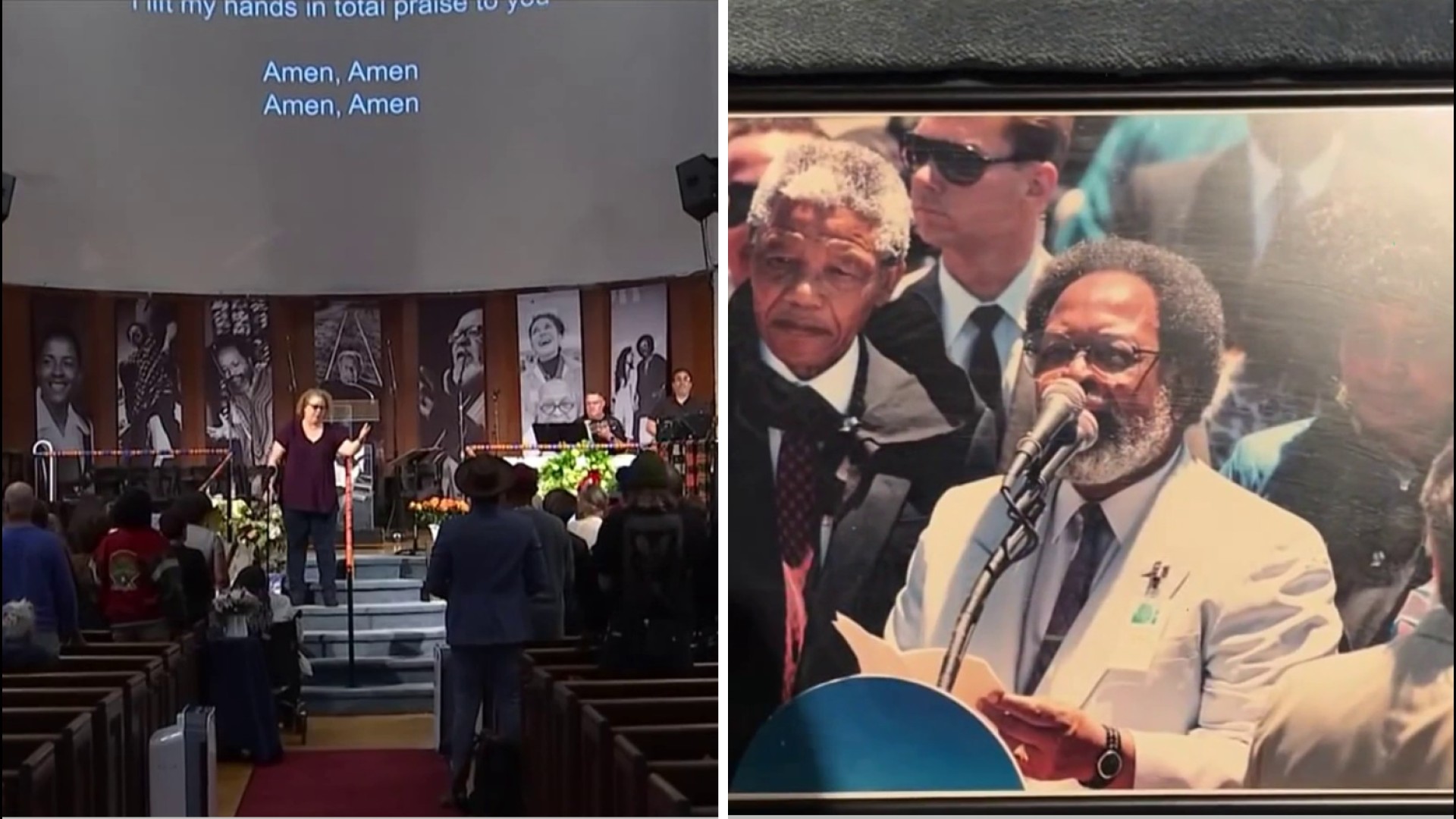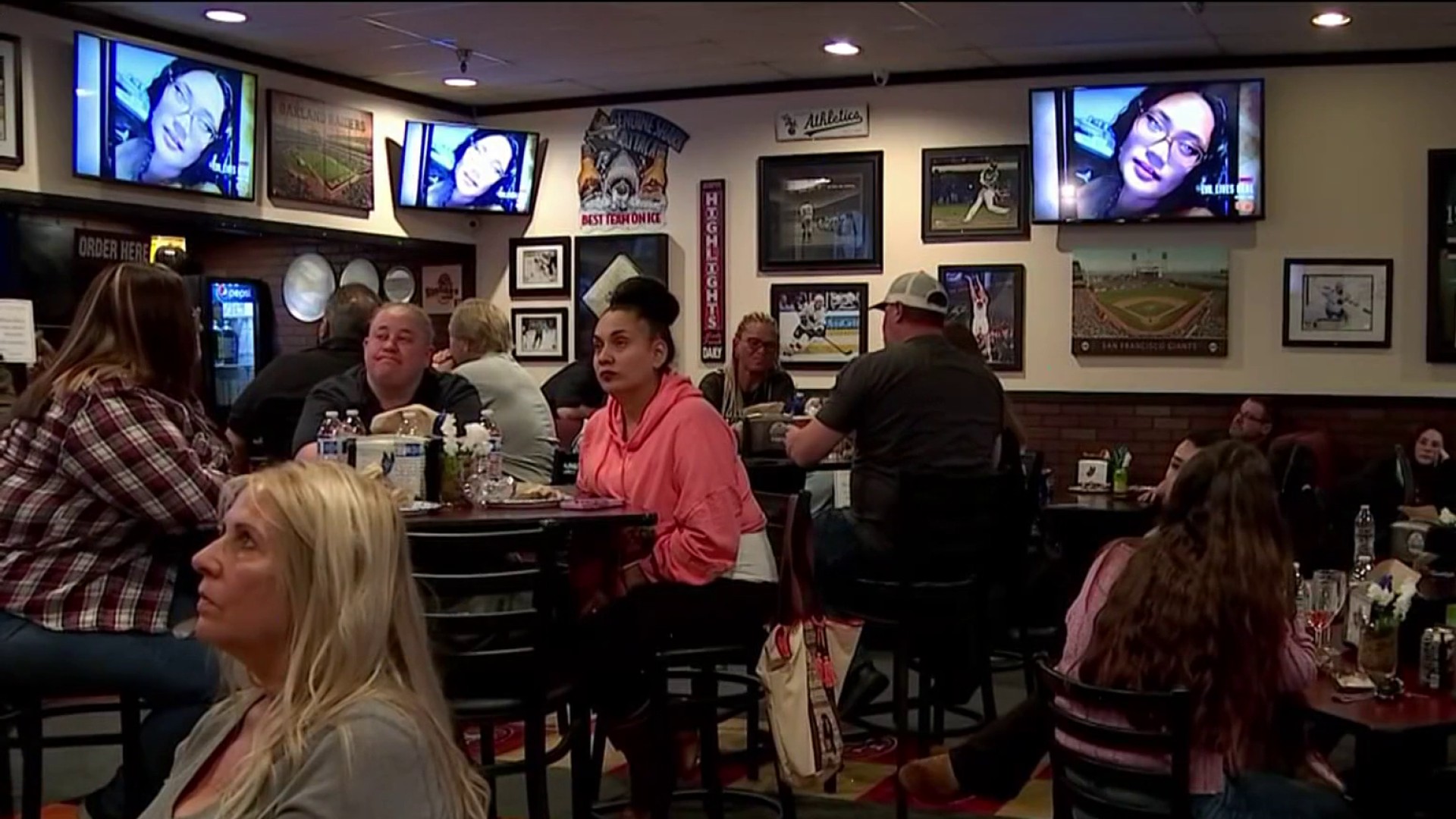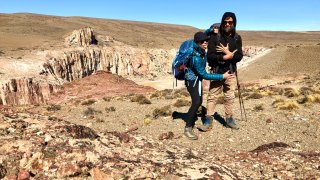
When a North Bay couple embarked on the journey of a lifetime, they had no idea that their dream vacation would end in a nightmare: banished into the Argentine desert, left to their own devices to obtain food and water amid a global pandemic.
Lucia Papineau and her boyfriend Colin, who requested that his last name be withheld, set out on a van trip through the Americas in 2018. The Sebastopol couple was in Argentina heading across the Patagonian desert in March of this year when they began to hear the first whisperings about the coronavirus.
When they reached the small town of Perito Moreno on March 17, they came to a newly set up police checkpoint and were denied entry, Papineau said.
“They told us to go back to where we came from,” she said during a recent phone interview.
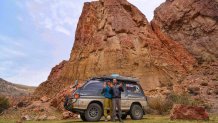
So they drove 75 miles back to the closest town, but were told they could not quarantine there, either.
Papineau said that in Argentina, disobeying the police is punishable by prison time. She said when she asked the police what they should do for food and water they were told, “It’s not our problem.”
Their only remaining choice was to set out into the desert to find a spot to shelter in place.
“We had no place to go, no access to food, fuel or water. We were stuck between two towns in the desert,” Papineau said.
On March 19, they used Google Earth to find a canyon where they sheltered for the next two weeks, sleeping in their van in temperatures as low as 20 degrees. Papineau said that it was also very windy, with wind speeds varying from a light breeze to over 80 mph.
“We had to hike an hour up the canyon walls to collect water,” Papineau said. “We could each carry 5 gallons, and that would last a couple days.”
Local
She said that they couldn't risk trying to find a better situation because if they ran out of fuel away from their water source they could end up even worse off.
"Just imagine being in the middle of nowhere," Papineau said.
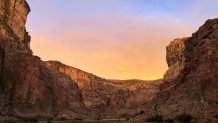
Using a handheld satellite device designed for off-the-grid communication, they located a man from the U.K. who hiked 15 miles to bring them some food and eventually convinced his property manager to let the couple come and stay.
“At that point, we had only had contact with family, the Embassy and the U.K. friend via 160-character texts,” Papineau said. “So we really didn’t know what to expect.”
Papineau said they tried to drive back into Perito Moreno to buy food, but were denied entry after being held at the checkpoint for six hours.
“While being held at the checkpoint, we contacted the U.S. Embassy, the U.S. Consulate, the State Department and the Ministry of Foreign affairs,” Papineau said.
“[The police] were terribly afraid of us…I think they associated every foreigner with having the virus, regardless of the fact that we had been on the continent for over a year.”
Papineau said someone from the U.S. Embassy eventually told them, “There is nothing else we can do for you. These small towns are making up their own rules.”
In the meantime, the property manager helped the couple get food, but restrictions on shopping made it nearly impossible for him to get enough.
Eventually, through a process that took several days, they were able to book a flight out of Buenos Aires after a friend who had a connection to a judge helped them get an order issued that said they could evacuate the Santa Cruz Province.
They knew they would probably not make their April 25 flight, but they needed to have the flight booked in order to be allowed to leave, so they took their chances.
Papineau said the drive took five days because they were only allowed to drive between the hours of 8 a.m. and 8 p.m., and during that time, they passed 28 police checkpoints -- some holding them for as long as three hours.
They missed their flight, but were able to find a family to quarantine with just outside of Buenos Aires as they awaited another opportunity.
Despite the uncertainty, Papineau said the situation was an improvement. They were allowed to buy groceries and even go outside occasionally.
“Everyone had to wear masks, and to enter a store everyone had to have their temperature taken,” she said. “The president of Argentina has now allowed one hour per day to go outside within a quarter-mile of your residence, but no running or exercise is permitted.”
After multiple missed and canceled flights, they managed to book one for May 8. They arrived in California on Mother's Day.
Papineau said she wants to make sure people understand that Argentina is not a bad place to visit. She said that this has been a bad experience, but it was only one experience, and a lot of people helped.

